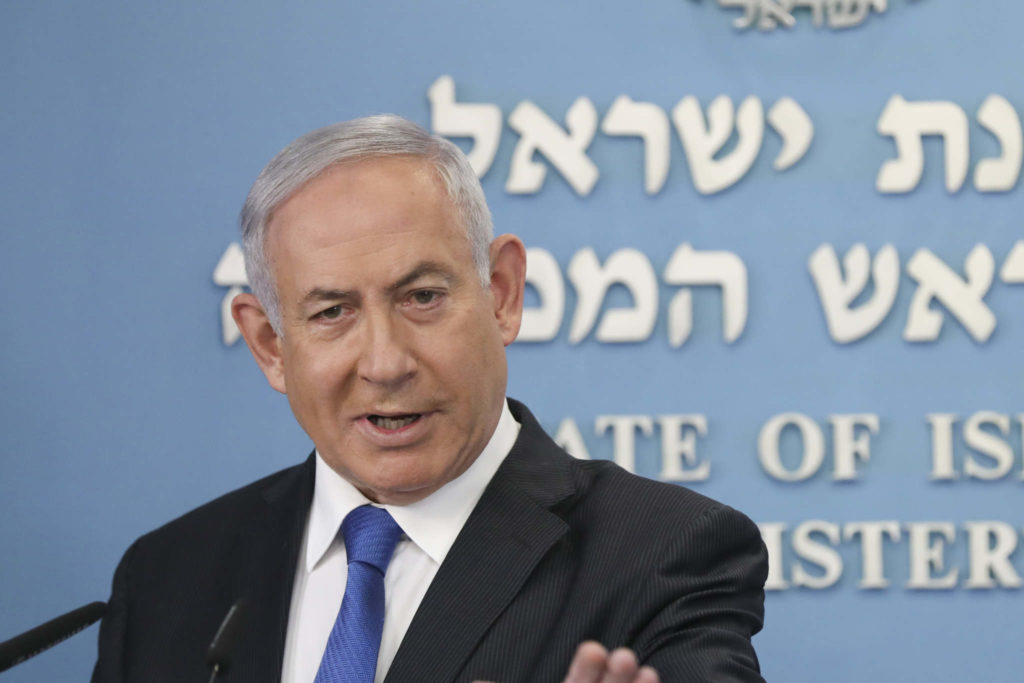IN THE MEDIA
Deals between Israel, UAE and Bahrain shatter old barriers
September 15, 2020 | Colin Rubenstein

An edited version of this article appeared in The Age, 15 September 2020
On September 15, Israeli PM Binyamin Netanyahu and United Arab Emirates (UAE) Foreign Minister Abdullah Bin Zayed will meet in Washington for the first White House Middle East peace treaty signing ceremony in 26 years. It has now been announced that Bahrain has also agreed to a full normalisation arrangement with Israel, either to be signed at the same ceremony, or shortly thereafter.
The UAE and Bahrain will take their places as the third and fourth Arab countries to break ranks from the now crumbling pan-Arab boycott against the Jewish State and open diplomatic relations, after Egypt (1979) and Jordan (1994).
However, these new, historic deals, unlike those before them, have not grown out of the cold, transactional “land for peace” framework of UN Security Council (UNSC) Resolution 242 that followed the 1967 Six-Day War, but a new model of “peace for peace” and shared mutual interests. There are the organic product of both economic opportunity and common security concerns, particularly vis-à-vis the threat to all three countries from Iran through conventional warfare, proxy militias and terror groups, and nuclear weapon ambitions.
While the earlier treaties led to “cold” relationships focussed on security, borders and non-hostility arrangements, the UAE and Bahrain promise Israel a warm, hospitable peace built upon a foundation of mutual respect and shared interests between historic regional neighbours.
But the agreements represent even more than this.
Since 1967, generations of peace negotiators have built their careers around the principle that Arab acceptance of Israel could come only after the Palestinians make peace with Israel. They have now been proven wrong.
Over the decades, the Palestinians have repeatedly and flagrantly exploited the sympathy of their Arab neighbours, “vetoing” any normalisation as the keystone to their broader international campaign to question Israel’s right to exist -without regard for how this might negatively affect the interests of other Mideast nations.
The shifts by the UAE and Bahrain reject this outdated approach, while simultaneously making a case for normalisation as a better way to facilitate Israeli-Palestinian peacemaking.
The UAE insists the normalisation deal dissuaded Israel from unilaterally extending sovereignty to areas of the West Bank, and in doing so, served the Palestinians’ best interests by helping safeguard the two-state Israeli-Palestinian peace paradigm. Perhaps. But more importantly, enlightened Arab leaders now have the chance to counsel the Palestinians regarding their current counter-productive, rejectionist stance, and, while advocating for Palestinian interests, also talk directly to their Israeli counterparts about what can realistically be done to meet Israel’s essential security needs in any two-state peace.
As UAE’s Deputy Foreign Minister Omar Saif Ghobash told the Israeli daily Yediot Ahronot on Aug. 21, “If the Palestinians cannot agree on a way forward – after [our] helping them repeatedly over the years – we need to choose the right path for us. This way can open up opportunities for the Palestinians and the Arab world and show them that there is nothing to fear.”
The Palestinian leadership’s very strong response to the UAE and Bahraini moves – and the anger this has generated in Persian Gulf states – only underscores how the traditional Palestinian “all-or-nothing” approach has become a major obstacle to peace for the region. It is the reason the Palestinians turned down repeated Israeli offers of statehood meeting most Palestinian aspirations in 2000, 2001 and 2008 – as many Arab leaders have come to recognise.
Meanwhile, the UAE and Bahraini decisions to normalise relations with Israel almost certainly occurred with the blessing of Riyadh, the most important capital in the Arabian peninsula. Saudi Arabia may not quickly follow suit, but is nonetheless very much a part of the new Middle East alignment.
While analysts agree discreet relations between Sunni Gulf states and Israel are nothing new, the scope of these dealings, and accordingly, the potential benefits, have been limited by their secrecy.
The UAE and Bahrain normalisation deals with Israel are therefore the tip of a much wider regional iceberg of changing strategic thinking that signals a far-reaching re-alignment.
At a time when the United States is committed to drawing down the number of troops it bases in the region, Western-aligned Arab states are recognising the value of partnering more openly with Israel in their common goal of thwarting Iran’s expansionism and deterring aggression.
In the context of the apparent paucity of resolve by the UN Security Council to address blatant Iranian violations of the 2015 Joint Comprehensive Plan of Action (JCPOA) nuclear deal and Non-Proliferation Treaty, the UAE and Bahraini moves cast in sharper relief the new alliances shaping today’s Middle East.
There is every reason to hope they will empower the Western-leaning Sunni Arab grouping through more open ties with Israel – boosting stability, expanding cooperation on defence and intelligence affairs, trade, investment and joint technological development, modernisation and the potential for increased cross-cultural dialogue. Meanwhile, it should weaken the rejectionist forces determined to destabilise the region – especially Teheran and its Hezbollah proxy in Lebanon; the Assad regime; Turkey’s Islamist ruler Erdogan; Hamas and the Muslim Brotherhood.
These normalisation agreements are a hugely positive, watershed development. Australia, where constructively both Foreign Minister Marise Payne and Shadow Foreign Minister Penny Wong have welcomed both deals, should now lend its diplomatic weight to helping encourage other Western-leaning Arab and Muslim allies to follow suit.
Colin Rubenstein is executive director of the Australia/Israel & Jewish Affairs Council.
Tags: Bahrain, Gulf states, Iran, Israel, Palestinians, UAE





